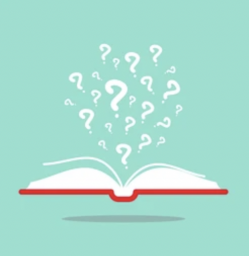The History Mystery
I remember when I learned to like history. It was last year. My teacher, Mr. Brown, said, “Take out your world history books and turn to page 3.”
We did, and I was ready to be bored. But on that page was this poem. I was surprised, because I thought it would be a page full of lots of facts.
The ancient Egyptians were very clever.
They figured out how to use the lever.
They built pyramids with stones that weighed a lot.
Many workers dragged them to the right spot.
Why not use wheels? We’re not certain.
History sometimes holds mysteries behind a time curtain.
Mr. Brown asked us, “What do you think the poem means?”
Darren raised his hand. He said, “Maybe what the poem means is that it is hard to know exactly what happened a long time ago.”
“Great answer,” Mr. Brown replied. “Yes, the poet is saying history is a mystery. How many of you like mysteries?”
Everyone said they did except Jerome. He doesn’t like anything. He never even pays attention.
“Let’s read this book like a mystery book. It will tell you about some of the things that happened. Some of these things we don’t know. For example, how do you think Abraham Lincoln felt when he was elected President?”
“He was happy,” I replied. “He won the election.”
“He was worried,” Marcia said.
“Why would he be worried?” Mr. Brown asked.
“Well, there were a lot of problems then,” Marcia replied. “I think he probably was worried about how to solve them.”
“That could be,” Mr. Brown said. “We might be able to find out if we read what Lincoln wrote in his letters and speeches, but we won’t know what he said to people. Let’s think about
another mystery. The poet talks about pyramids. How do you think those workers felt?”
Jerome said, “I think they were very tired from doing all that hard work.” He had listened.
I said, “I think they were very proud of what they did.”
Mr. Brown said, “Both of those answers are possible. We will never know for sure. When you read the history of any event, we never have all the information. So reading history is like reading a mystery. You need to think about what happened, why, and how people probably felt. That is called “reading between the lines”—thinking about what the book didn’t tell us.
From then on I liked history a lot. I like mysteries.
